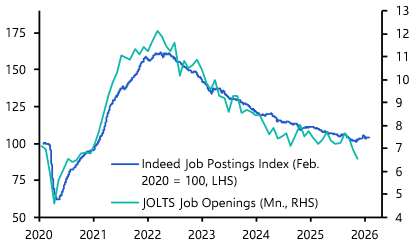The second year of the living with the pandemic has had its share of high and low points for economies and markets. These are the top 10 stories of the year, according to the Capital Economics team:
- China-US relations – Tensions continued to rise in 2021 within the bilateral relationship, despite more conventional leadership in the White House. This is the world’s biggest geopolitical flashpoint, but China faces the greater economic challenge: we doubt its GDP will overtake the US and its economic sphere is smaller and more vulnerable to a nasty break in the relationship.
- Inflation – The sharp rise in price levels across much of the world is forcing a growing number of central bankers to stop sitting on their hands (though not in Asia). This is no 70s revival – inflation rates won’t get that out of control and talk of a return to stagflation points to a misreading of recent history – but inflation will be sticking around in some economies for a while.
- Shortages – Semiconductors, roof tiles, natural gas, truck drivers…..clowns? “Supply shortages” are an incomplete description of what’s been happening worldwide in 2021: in some cases this is about unusually strong demand. Either way, while we’re seeing some signs of easing, many shortages are likely to persist well into 2022.
- Turkey – The lira’s stunning collapse – and the looming economic fallout – can be pinned on one man’s embrace of unorthodox economic ideas. Crises like these don’t tend to stop until monetary authorities take a stand but there’s no meaningful sign yet of a shift in Ankara. The good news is that Turkey doesn't appear contagious to other emerging markets.
- Equities boom – Gamestop shares began the year trading below $20. In less than a month they were changing hands at nearly $500. That’s an extreme example of a stock market boom which has run on this year, despite Delta, despite the Fed, despite Omicron (so far). Even so, we don’t think the S&P 500 is in a bubble – though that doesn’t mean stellar returns will continue.
- Housing booms – It was a good year for advanced economy housing markets too, fuelled by tax holidays, low rates and ongoing demand for bigger space to work from home. Price growth will cool in the coming months as policy makers step up, but fears that bubbles are about to burst look misplaced without a big spike in rates.
- Commodities boom – Energy prices were the standout, but this has been a year of remarkable moves throughout commodities markets (remember timber's record run at the start of the year?) Talk about a supercycle won’t go away, but we think it should: supply will catch up and China’s structural slowdown is in full effect.
- Evergrande busts – Speaking of China, it wasn’t too long ago when it was unthinkable that Beijing would allow a company with nearly RMB1tn in debt to go to the wall. But Evergrande is failing and the Chinese government is largely on the side lines. It’s a seismic moment for China’s economic model, with only more pain to come for the construction industry.
- Climate commitments – Forest fires, droughts, floods. It’s been a year of extreme weather events, with big consequences for commodities markets. COP26 may have disappointed, but there’s still (a little) time for action. From an economic perspective, this isn't a zero-sum game, though failure to act will leave governments with the nasty choice of accepting the costs of global warming or trying to slash emissions in a hurry.
- The pandemic – What else could be the biggest story of the year? 2021 began with hopes that vaccine breakthroughs would mean that the global economy could move on from the coronavirus. Although extensive vaccination programmes did help fuel V-shaped recoveries, the year ends under the rapidly-growing shadow of the Omicron variant.



